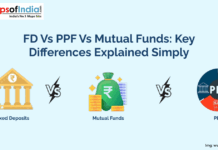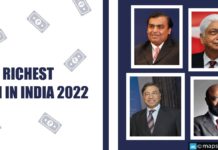Ratan Tata in a statement in 2012 said that one cannot do business in India without paying a bribe. The statement was in context to the revelations that came from the Civil Aviation Ministry about a cabinet minister asking for ‘speedy’ money informally known as bribe when the Tatas applied for an airline license way back in 2007.
It would not be immature to state that bribe has become a way of life for many Indians who not only aspire to carry out their business interests but also get their residential addresses verified by the police for acquiring a passport. In an initiative named ‘I paid a bribe’ by a Bangalore based NGO called Janaagraha, around Rs. 4.3 crore of bribe was paid by Delhiites alone to government officials in the last three years. This figure is estimated to be only a tip of the iceberg as the figure has come from online confessions from anonymous individuals. The real share, obviously, would be manifold of the figure stated.
Around 930 cases were reported of which bribing related to traffic rule violations and police verification required for a passport occupied the top two places as the reasons for bribing. Apart from these, domains like land conversion, obtaining favourable judgements and custom clearances also attracted huge bribes. The government departments which were held most guilty of receiving bribes included the police department for address verification and customs department for custom clearance. Judiciary topped the list of departments receiving the highest sum of money as bribes in lieu of favourable court judgments. The Municipal Corporations and the Stamp and registry department too were accused of collecting bribes. It is without any wonder that a Rs. 100 stamp-paper for a rent agreement in Noida sells for not less than Rs 150.
The confessions of bribe paying instances by the residents of the national capital were sometime hilarious and at times poignant. At this juncture, it is important to note that Delhi state has got a right to service bill which ensures timely delivery of service. A police verification certificate for obtaining a passport comes at around Rs. 300. A passport which normally costs Rs. 1000 to make comes quickly to your doorstep on payment of an additional fee which is six to ten times the normal fee. In other instances, a person had to treat the local traffic policeman with French fries from a reputed fast food chain for jumping signals. A new water connection cost a resident of Delhi an amount of Rs. 6500. There were also instances of engineering and medical colleges demanding bribes to the tune of Rs. 30 lakhs for a seat, exclusive of the course fees. Many of the middle class parents would have come across a term called capitation fee when visiting private schools to get their wards admitted. This capitation fee is nothing but bribe. Also, one can come across instances, when institutions like hospitals offer a small discount for paying the bill in cash as this bill money is converted into black money after adjusting this payment under some donations quota.
The story of bribing in the education sector is even more pathetic. Capitation fees are asked right from the pre-school level and are rampant when a student applies for an undergraduate courses like medical and engineering. For colleges who tend to have a placement record, this capitation fee amounts to a value which is five-fold the normal course fee amounting to the range of Rs. 30 lakh to Rs. 50 lakh. In government colleges, many rackets are widespread where dubious agencies get students admitted under quotas like freedom fighters category in exchange of a huge amount from the guardian of the ward.
The rampant demand for professional courses has led to the birth of growth of a big breed of dubious entrepreneurs who have ‘jacks’ in various colleges offering professional courses like MBBS and MBA.
In case of government agencies, the common reason cited was the meager salary received by the employees which often proves to be insufficient to run their households. In a statement, the eminent Indian economist, Kaushik Basu advocated for legalizing bribe money as ‘speed money’ for ease of doing business, big and small. However, promoting such a strategy would have been synonymous to promoting talks with criminals in order to control them rather than convict them.
India is a land of many parallels and so is its economy which still stands largely unorganized and uncoupled with the theories of the western B-school curriculum. Evidently, many surprises do evolve from time to time and the domain of bribery is no different. It would be interesting to see whether the people compromise with it or fights against it.
Read More:
What is GST: How will it change India
Sensex, Rupee Vs Dollar, and Gold Rate – Do they reflect our economic outlook?
Is India Heading Towards Another Economic Crisis?
Positive signs for Indian economy – what does it mean?
Important facts about Indian Economy
Rupee Free Fall: Cause and Consequence
Why is the Indian Rupee Depreciating?
Investment Risks to Economy – Caution Is the Watchword for RBI
Economic Reforms in India: BJP Government Keen on Taking Tough Calls
FDI Norms for NRIs Relaxed – Foreign Investments Anticipated
Will India be affected by the Crisis in Greece?
Effects of Poor Monsoon on the Indian Economy and various sectors
How Inward Remittances impact the Indian Economy
Monsoons and the Indian economy




